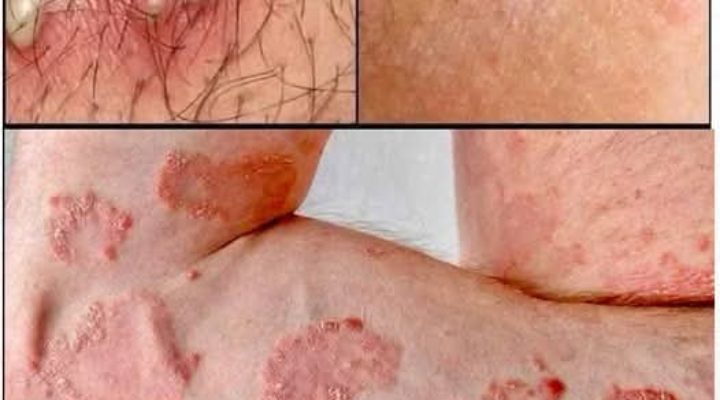These are the signs that he is cr… See more
Skin irritation in the groin area is a widespread concern that can affect people of all genders and ages. The groin is a warm, moist, and often confined environment, which makes it a prime area for various dermatological issues. Understanding the causes, symptoms, and safe treatments of these conditions is essential for maintaining good hygiene and skin health.
1. Ingrown Hairs
What They Are
Ingrown hairs occur when hair curls back or grows sideways into the skin instead of rising up from it. This often causes red, itchy bumps that resemble pimples. In some cases, ingrown hairs can become infected, resulting in painful pus-filled lesions.
Causes
Shaving, waxing, or plucking hair too closely
Wearing tight clothing that causes friction
Naturally curly or coarse hair
Symptoms
Small, round bumps that may contain pus
Redness and inflammation
Itching or discomfort in the affected area
Treatment
Apply a warm compress to reduce swelling
Use exfoliating cleansers to remove dead skin
Avoid shaving until the area heals
In severe cases, consult a dermatologist
Source: American Academy of Dermatology
Ingrown hairs – NHS
2. Folliculitis
What It Is
Folliculitis is an inflammation of the hair follicles caused by bacteria, fungi, or irritation. It appears as red or white-headed pimples around hair follicles and can be itchy or painful.
Causes
Bacterial infections, especially Staphylococcus aureus
Friction from tight clothing
Shaving or waxing
Exposure to hot tubs or poorly sanitized water
Symptoms
Red, inflamed bumps or pustules
Mild burning or itching
Tender skin around hair follicles
Treatment
Clean the area with antibacterial soap
Apply over-the-counter antibiotic ointments
Use warm compresses
In persistent or severe cases, oral antibiotics may be required
Source: Mayo Clinic
Folliculitis treatment and prevention – Harvard Health
3. Tinea Cruris (Jock Itch)
What It Is
Tinea cruris, commonly known as jock itch, is a fungal infection that affects the groin, inner thighs, and buttocks. It is more common in men but can affect anyone. The infection thrives in warm, moist environments.
Causes
Excessive sweating
Wearing tight or non-breathable clothing
Sharing towels or personal items
Poor hygiene
Symptoms
Red, scaly patches with raised edges
Itching, burning, or irritation in the groin
Rash that may spread to thighs or buttocks
Treatment
Use antifungal creams like clotrimazole or terbinafine
Keep the area clean and dry
Avoid sharing personal items
Wear loose-fitting, breathable underwear
Source: Centers for Disease Con
trol and Prevention (CDC)



